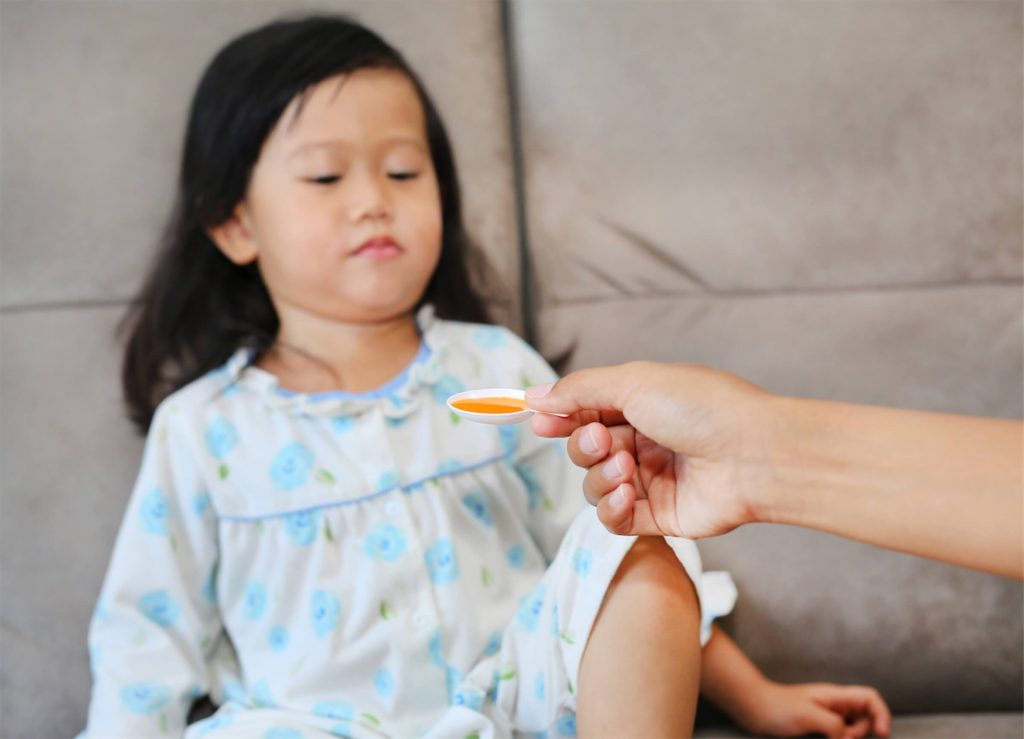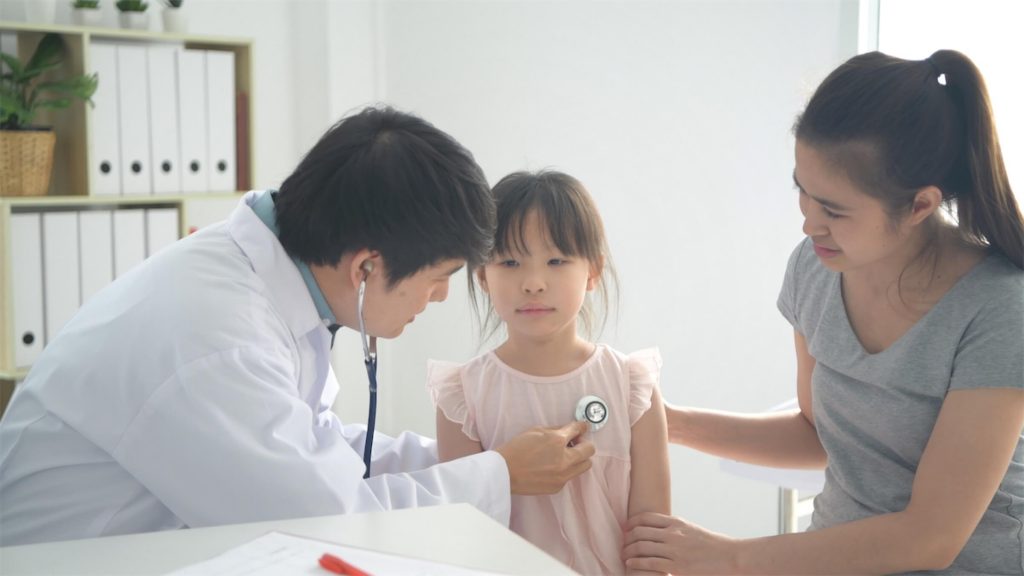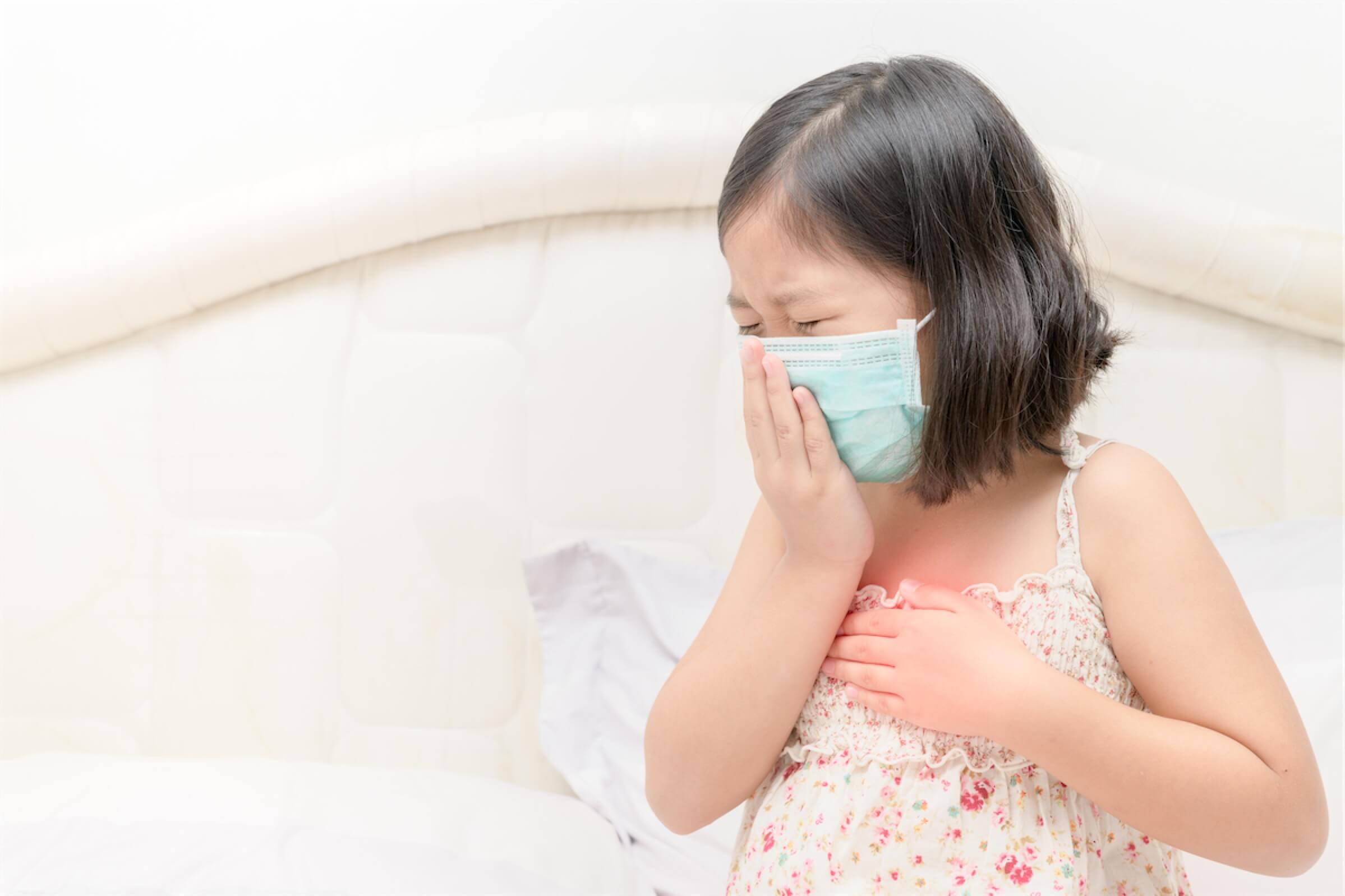Is your child suffering from intense, uncontrollable coughing? There’s a chance he or she might have gotten the 100 days cough.
In this article, we discuss what the 100 days cough is, its causes, symptoms, risks and treatments you should consider.
What is the 100 days cough, also known as whooping cough?
The 100 days cough, also commonly known as the whooping cough, takes its name from the heavy wheezing sounds you make when trying to breathe in between coughs. In general, those who suffer from the 100 days cough experience severe hacking cough and a high-pitched intake of breath.
Before vaccines were invented, the 100 days cough was thought to be a childhood disease. Now, it affects children below the age of five, or those too young to go through the immunisation programme.
What causes the 100 days cough?
The 100 days cough is a highly contagious upper respiratory infection caused by a bacteria called bordetella pertussis. These bacteria release toxins, causing your airways to swell and damage cilia (tiny, hair-like extensions) that line part of your upper respiratory system.
Like most coughs and cold, your child can catch the disease just by sharing the same breathing space — similar to the way COVID-19 is spread. Transmission occurs when a person comes in contact with an infected person. Tiny droplets laden with germs are released into the air when an infected person coughs or sneezes. Standing in close range may result in you breathing in these droplets.
If you think your child has recently come into contact with someone with the 100 days cough, and are showing symptoms of it, consult a doctor immediately. MyDoc’s COVID-19 Clinic can help assess your risk and address your medical concerns.
Due to its highly contagious nature, it’s important to stay home and rest when diagnosed with the 100 days cough and prevent the spread.
What are the symptoms of the 100 days cough?

Symptoms of the 100 days cough may take up to 7 to 10 days to show after being exposed to the bacteria.
Early symptoms are quite similar to the common cold. Your child might experience the following in the first one to two weeks of infection:
- Runny nose
- Cough
- Sneezing
- Fever
After that, intense coughing ensues and could last up to two months. In some cases, these coughing episodes may lead to vomiting, nosebleed or even burst blood vessels in the eyes.
If left untreated, the 100 days cough may affect your child’s overall health and energy, as continuous intense coughing can be strenuous to the body.
The three stages of the 100 days cough
If your child is suffering from the 100 days cough, there are three stages to this disease you should be aware of.
1. The catarrhal stage
This is the very first stage of the 100 days cough. The catarrhal stage, or runny nose stage, tends to last for one to two weeks.
Symptoms during this stage are similar to the common cold. Your child may experience a runny nose, nasal congestion, sneezing and a slight cough. In some cases, a low-grade fever may be present.
2. The paroxysmal stage
In the second stage, coughing becomes more serious. Your child will experience a “whooping” sound in between coughing hacks or when trying to inhale.
Since coughing during this stage is more intense, breathing becomes more uncomfortable.
3. The convalescent stage
In this stage, your child slowly starts to recover. Episodes of coughing start to ease as a slow recovery ensues.
Occasional coughing might still occur but breathing becomes less uncomfortable, and your child may not experience a “whooping” sound when they inhale.
| Stage | Period | Symptoms |
| Catarrhal stage | One to two weeks | – Runny nose – Nasal congestion – Sneezing – Slight cough – Low-grade fever |
| Paroxysmal stage | One to six weeks | Cough worsens – “Whooping” sound in between coughing hacks and breathing, – Breathing becomes uncomfortable |
| Convalescent stage | Weeks to months | – Less, occasional cough – Breathing becomes easier – May not experience “whooping” sound when inhaling |
When to see a doctor for 100 days cough
In some instances, a prolonged cough can lead to other problems. If you find that your child’s condition is not improving, and instead, is showing signs of worsening, you should immediately consult the doctor.
In severe cases, your child may experience vomiting, difficulty in breathing and loud whooping sounds in inhalations. These are signs that the 100 days cough might not be easily resolved with home remedies or by merely installing a humidifier in the room.
If your child also happens to suffer from asthma, do not take the 100 days cough lightly. Some sufferers of the 100 days cough also experience noticeable pauses in breathing, which can be dangerous.
Make sure you consult a doctor and get professional advice. It may seem like a minor illness, but when it worsens, it could lead to severe health conditions. Especially among children who don’t have a strong enough immunity system yet.
What can be done to aid recovery of the 100 days cough?

There are many treatments your child can undergo to ease the 100 days cough symptoms. These range from simple lifestyle changes to medications you can get from consulting a doctor.
For instance, using a humidifier can help with the 100 days cough, as it increases moisture in the air. This will help make breathing easier and loosen mucus in the airways. You can get a humidifier for your child’s room, but be sure to clean the humidifier regularly and ensure that there’s no mould or bacteria. Otherwise, it might worsen your child’s condition as it causes them to breathe in unclean air.
Lifestyle changes also play a part in preventing and easing the cough symptoms. Smoking, exposure to secondhand smoke, dust and dry air often irritate our respiratory system and triggers the cough.
Keeping your child’s room clean and ensuring that they’re not exposed to secondhand smoke will help ease the problem. Breathing in secondhand smoke will only exacerbate the problem.
If none of these lifestyle changes helps, you might want to seek professional healthcare treatments from your doctor. Visit a nearby clinic and consult a doctor about the health issues your child might be facing.
What are the potential complications?
As their immune system is weaker, infants suffering from the 100 days cough may experience further complications. Pneumonia, seizures and even brain damage are possible consequences of severe whooping cough. In some cases, it could cause life-threatening complications, especially within the first six months of life.
As such, it’s vital to ensure that children and infants who are too young to undergo whooping cough vaccination are well taken care of if they are experiencing any signs of the 100 days cough.
Read more about how whooping cough vaccination can protect you and your family here.
Know the early symptoms and take precautions

Knowing what the early symptoms of the 100 days cough are can allow you to take the necessary precautionary measures. It’s better and safer to consult a doctor immediately if you suspect that your child is suffering from the 100 days cough, so as to prevent the condition from escalating.
Being educated about the disease is crucial, especially for parents who have young children at home. As children are more susceptible to this disease, it’s essential to pay close and careful attention to your child’s health to identify problems early on.
While the 100 days cough mainly affects children, adults may also catch the disease. If you suspect that you have it, reach out to healthcare professionals who can give you the advice you need.

